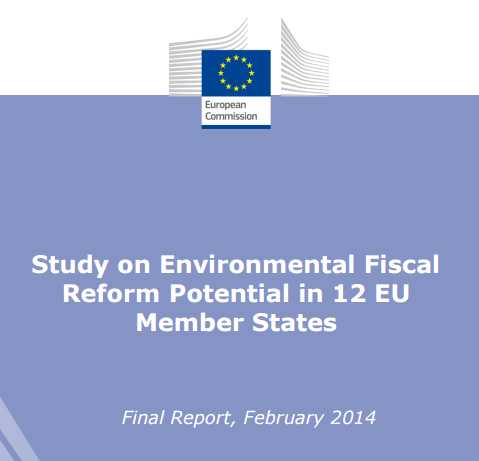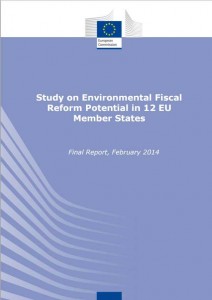
Study on Environmental Fiscal Reform Potential in 12 EU Member States
The European Semester process provides an opportunity to ensure that macroeconomic policies are sustainable, not only economically and socially, but also environmentally. In the 2014 European Semester, the Annual Growth Survey (AGS) was adopted on 13 November 2013 (15803/13), and the priorities identified therein should be addressed in the National Reform Programmes (NRPs) which are due by the end of April 2014. The priorities identified by the AGS include the following:
Tax should be designed to be more growth-friendly, for instance by shifting the tax burden away from labour on to tax bases linked to consumption, property, and combatting pollution.
Increasing resource efficiency and reducing the EU’s dependence on external energy sources must be part of the EU’s growth strategy.
Promoting resource efficiency by improving waste and water management, recycling and energy efficiency.
The AGS also underlines the need to reduce environmentally harmful subsidies and to exploit the employment generating potential of the green economy.
The references to more growth friendly tax systems, and the expressed desire to promote more efficient use of both energy and other resources, point towards the centrality of environmental fiscal reform (EFR) as a means to set the European economy on a trajectory of growth with a strong shade of green. The approach fits well with the AGS view that “recovery in Europe does not mean getting back to ‘business-as-usual’“.
Release date: February 2014
DOWNLOAD STUDY












